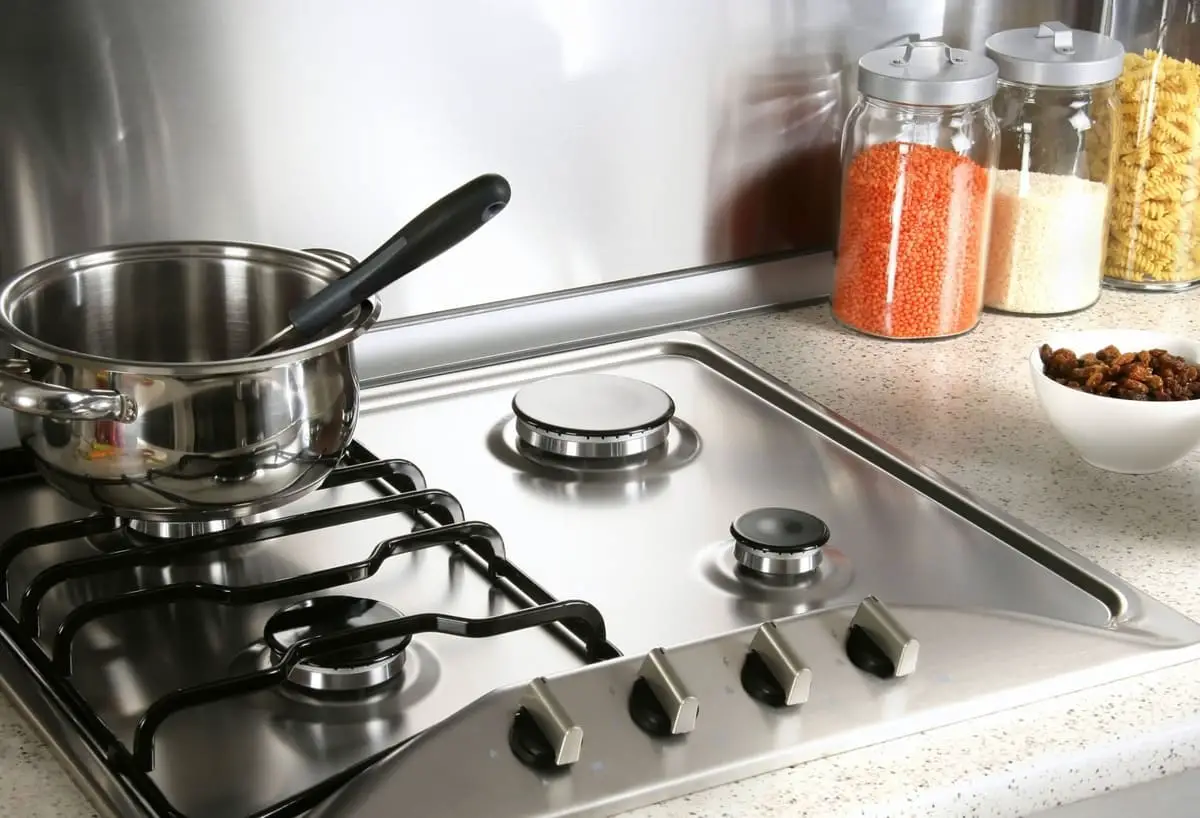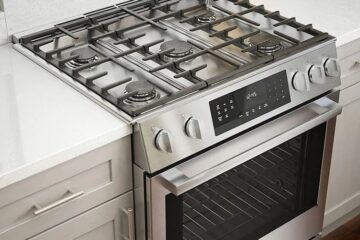When it comes to cleaning stove grates, there are a few different methods to choose from. One option that some people consider is putting their stove grates in the dishwasher. However, whether or not this is a good idea can be a bit of a contentious topic.
Some people argue that putting stove grates in the dishwasher is perfectly fine, while others say that it can cause damage to the grates and the dishwasher itself. Ultimately, the answer to whether or not you can put stove grates in the dishwasher will depend on a few different factors, including the type of grates you have and the capacity of your dishwasher.
If you’re considering putting your stove grates in the dishwasher, it’s important to weigh the pros and cons carefully. While it may seem like an easy way to get them clean, you could end up causing damage to your grates or your dishwasher if you’re not careful. In the following sections, we’ll take a closer look at what you need to know about putting stove grates in the dishwasher, including some tips for doing it safely if you decide to go that route.
Why You Shouldn’t Put Stove Grates in the Dishwasher?
When it comes to cleaning stove grates, some people may wonder if it’s okay to put them in the dishwasher. While it may seem like an easy and convenient way to clean them, there are several reasons why it’s not recommended. In this section, we will discuss the various reasons why you shouldn’t put stove grates in the dishwasher.
Damage to the Grates
One of the main reasons why you shouldn’t put stove grates in the dishwasher is that it can cause damage to the grates. Most stove grates are made from cast iron or porcelain-coated steel, which can be easily damaged in a dishwasher. The high heat and water pressure can cause the grates to warp or crack, which can make them unusable.
Damage to the Dishwasher
Another reason why you shouldn’t put stove grates in the dishwasher is that it can cause damage to the dishwasher itself. Stove grates tend to be heavier, and depending on your dishwasher’s capacity, the weight may harm the appliance. Attempting to wash them could damage the system.
Risks to Health and Safety
Putting stove grates in the dishwasher can also pose risks to health and safety. If they’re left in the dishwasher and soak for too long, they can get rusted. If they’re not dried thoroughly, this could also lead to rusting. The dishwasher may not be capable of holding the grates, and attempting to wash them could damage the system.
How to Clean Stove Grates?
Cleaning stove grates can be a daunting task, but it is necessary to maintain their appearance and functionality. Here are the steps to clean stove grates effectively.
Materials Needed
Before starting the cleaning process, make sure to have the following materials:
- Hot water
- Dishwashing liquid containing a degreaser
- A soft-bristled brush or sponge
- A sink or large container to soak the grates
Preparation
First, make sure the stove grates are completely cool. Then, remove them from the stovetop and place them in an empty sink or container.
Fill the sink or container with hot soapy water using dishwashing liquid containing a degreaser. Leave the grates to soak for a good 15 minutes.
Cleaning Method
After soaking, scrub the grates with a soft-bristled brush or sponge. Make sure to scrub all the sides and corners of the grates to remove any debris or stains.
Rinse the grates with hot water to remove any soap residue. Dry the grates thoroughly with a clean towel or let them air dry.
It is important to note that stove grates made of cast iron should not be put in the dishwasher. The high heat and harsh detergents can damage the grates and remove their seasoning, leading to rust and a decrease in their lifespan.
Alternative Cleaning Methods
If you don’t have a dishwasher or prefer not to use it to clean your stove grates, there are alternative cleaning methods that you can try. Here are a few options:
Soaking
Soaking your stove grates in hot, soapy water can help loosen and remove built-up grease and grime. Fill a sink or large bucket with hot water and add a few drops of dish soap. Submerge the grates in the water and let them soak for several hours or overnight. After soaking, use a scrub brush or sponge to remove any remaining debris.
Boiling
Boiling your stove grates in a pot of water can also help remove stubborn stains and buildup. Fill a large pot with enough water to cover the grates and bring it to a boil. Add a few tablespoons of baking soda to the water, then carefully place the grates in the pot. Let the grates boil for 10-15 minutes, then remove them from the water and use a scrub brush or sponge to clean any remaining debris.
Scrubbing
For tougher stains and buildup, scrubbing your stove grates with a cleaning solution can be effective. Mix equal parts baking soda and water to make a paste, then apply the paste to the grates and let it sit for several minutes. Use a scrub brush or sponge to scrub the grates, then rinse them with water and dry them thoroughly.
Conclusion
In conclusion, it is possible to put stove grates in the dishwasher, but it is not recommended. The search results indicate that cast iron grates can be damaged by the moisture and heat in the dishwasher, causing them to rust over time. While some sources suggest that it may be possible to prevent rusting by taking certain precautions, such as seasoning the grates before and after washing, it is generally safer to avoid putting them in the dishwasher altogether.
Hand washing the grates with soap and water is a simple and effective method for cleaning them. It may take a little more time and effort than using a dishwasher, but it will help to ensure that the grates remain in good condition over time. Alternatively, some sources suggest using a vinegar and baking soda solution or a commercial oven cleaner to remove stubborn stains and grease from the grates.
Ultimately, the decision whether or not to put stove grates in the dishwasher will depend on personal preference and the specific type of grates being used. If the grates are made of a material that is dishwasher safe, such as stainless steel or porcelain-coated cast iron, and the dishwasher has a gentle cycle, it may be possible to use the dishwasher without damaging the grates. However, for cast iron grates, it is generally safer to stick with hand washing to avoid rusting and other damage.



